DBT for LIFE
Skills to Transform the Way You Live
DIANA PARTINGTON
Diana Partington
LPC-MHSP, M.Ed
Illustrations by NIlufer Ustuner
Supplemental Illustrations by Nataliia Mazepa

Blue Lotus Press


Diana Partington
LPC-MHSP, M.Ed
Illustrations by NIlufer Ustuner
Supplemental Illustrations by Nataliia Mazepa

Blue Lotus Press

When I first started DBT as a client, I thought Mindfulness was just about paying attention to your breath (boring.) I didn’t want to learn about watching my breath. I wanted help. I wanted to rush through this Mindfulness crap and learn how to stop destroying my relationships and feeling like I wanted to die.
Sitting still and watching my mind sounded like torture. I was uncomfortable being alone with my thoughts. It wasn’t peaceful in there. It felt like navigating an active minefield.
Unfortunately for me (or so I thought), Mindfulness is the foundation of every other skill taught in DBT.
All skills in DBT rely on Mindfulness. To use DBT skills, you have to be aware enough to think, Oh man—here we go. I need to apply my skills here. And the relationship goes both ways: All the skills give you strategies and tools for being mindful.
There’s so much to learn. Please, don’t worry. We’ll take it one step at a time. In the coming chapters, I will give you concrete strategies to practice Mindfulness.
Your mind regurgitates everything you have seen, read, heard about, and experienced, producing thousands and thousands of thoughts every day. Mindfulness helps us manage that relentless chatter. Mindfulness practice builds our brain muscles so we can direct our awareness where we want it to go. For example, Mindfulness will help you focus your attention on your job when you’re at work, instead of being preoccupied with every detail of your recent conflict with your partner.
When you are be mindful of your experiences, you become an observer. This gives you choices—choices about how you respond. Mindfulness guides us away from our destructive impulses by giving us breathing room between an event that has triggered us and our response. It can free us from reactivity, but it also opens us to more pleasure. That pleasure comes from being fully present for each moment of our lives—instead of falling into fears about the future or being consumed by the pain of the past.
Sometimes it seems like my painful, obsessive thoughts grab hold of me like a lioness sinking her teeth into my neck. She drags me around her den, shaking me and loosening my grip on reality. Painful thoughts and fears rattle around in my skull. When I use Mindfulness to step back and Observe my mind, it’s like prying myself loose from her jaws, freeing myself from the grip of rumination.
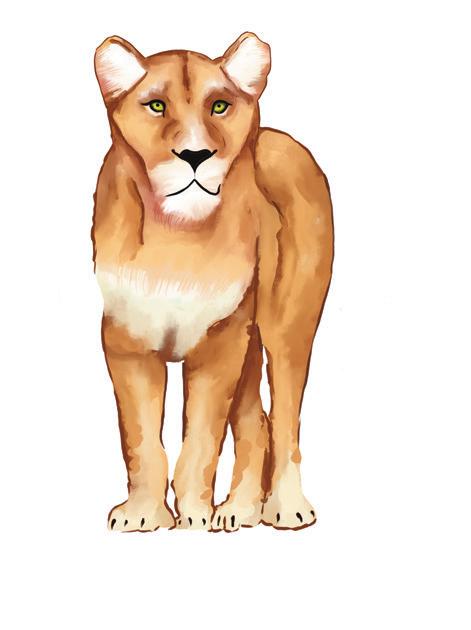
The best part of Mindfulness is increased awareness of the things you love. When you spend time with people you love, Mindfulness helps you be more connected. How? Because you’re pulling your mind into the experience you are having instead of having your attention dragged around by your fears.
There is something extraordinary about being fully present for your meal, a concert, or perhaps this book without your mind scattering your attention in different directions.
In this unit, you will learn the how’s of Mindfulness through using DBT skills:
• Using your Wise Mind
• Observing and giving yourself a pause between action and reaction
• Describing the facts with a nonjudgmental stance
• Being Effective as a Mindfulness skill
Read on my friends, read on.
When we are mindful, deeply in touch with the present moment, our understanding of what is going on deepens, and we begin to be filled with acceptance, joy, peace and love.
Between stimulus and response there is a space. In that space is our power to choose our response. In our response lies our growth and our freedom.
Dr. Viktor Frankl Psychiatrist, Holocaust survivor, creator of Logotherapy

Have you ever been tossed around by a wave at the beach?
A wave big enough to swallow you? Did it tumble you around until you weren’t sure which way was up and which way was down? Feeling like you might never breathe again? Being overwhelmed by intense emotions can feel like that.
For the ocean, each wave is a passing event. Each wave changes the ocean slightly, but only briefly—even a tidal wave will pass.
You are the accumulation of all your life’s experiences, with each arising emotion being only a single experience. You are, in a sense, an entire ocean, and the feeling is just a passing wave.
A wave cannot drown the ocean.
You may wonder: How is stepping out of your experience to observe the moment as a wave also Mindfulness? Mindfulness is about being in the moment as much as not being trapped in the smallness of any one moment.
Next time you feel caught in the crash of overwhelming emotions, remind yourself:
“This wave will pass. I can survive this.
I am the ocean. This is just a wave.”
“This emotion is a wave; you are the ocean.”Tara Brach Meditation teacher, psychologist
Learning to be fully present in the current moment takes practice. Building your Mindfulness muscle is like weight training. Repetition is key. We focus our attention where we want it. Then the mind wanders. We notice it wandering and redirect our attention. Again, and again. Dedicating time to Mindfulness practice will help you manage your mind when a crisis strikes. The story “Barracudas” illustrates how daily Mindfulness practice can even save your life.

“A nklets A
A rr A cud A s ,” Narissa’s grandmother said as she turned from the stove, waving her spatula at the young women for emphasis. She shook her head, surveying the tacky bikinis and cheap jewelry Narissa and her sister had purchased at the tourist shops in Christiansted. “The barracudas’ll rip off your toes. Or take a bite out of those breasts!”
It was true. Barracudas are common in the Caribbean. These aggressive silver fish have two rows of razor-sharp teeth and are known for mistaking the glint of jewelry for a tasty little fish. Narissa grew up with stern warnings about barracudas biting off a foot or a finger—sometimes even a breast. Kids who grew up watching Jaws are petrified of sharks. Growing up in the Caribbean, Narissa dreaded barracudas.
Narissa’s grandmother tapped the old photo of Aunt Polly on the fridge. “Your auntie knows. She lost her wedding ring and her finger.”
Home from college for Christmas break, the sisters spent their days visiting their favorite beaches with their cousins. Tony had a little dinghy with an outboard motor. Today he was taking them to a sandbar about two miles from the coast.
“Those smell amazing.” Narissa grabbed one of the conch fritters her grandmother had just pulled from the oil. “Oh! Hot!”
“Get your hands outta there! Those’re for the picnic. I got some Ting to drink and mango slices. These’ll be ready real quick. You be sure to share with your cousin, now.”
Narissa kissed her grandmother’s cheek. “Thank you for taking such good care of us,” she said as they left.
The day was gorgeous. The dinghy zipped through the water. The wind whipped through Narissa’s hair and rattled the plastic beads dangling from her new suit. “That’s barracuda bait hanging from your breast there!” her sister teased, imitating her grandmother.
“Maybe these suits weren’t such a great idea. Think of poor Aunt Polly . . .” Narissa said with a look of concern, gazing down through the clear water in search of threatening marine life.
At that moment, the engine sputtered, spit, and went silent.
Then the only sounds were water lapping against the boat and Tony swearing while he pulled the ignition again and again to no avail. The motor did not cooperate. Suddenly, the vast expanse of the ocean became much more imposing.
Narissa estimated they were about a mile and a half from the coast. The current was pushing them farther out to sea by the minute. “We better row for shore.”
The oars struggled against the current. As hard as they rowed, the shore continued to recede. Narissa remembered a story of two women who had been lost at sea when their motor died on a similar excursion. Somehow, they survived for ten days before they were found. Humans are only supposed to live for about three days without fresh water.
Narissa gauged the increasing distance to the beach. She turned to her sister. “Cut off my anklet and these beads. I’m gonna swim to shore and find a boat to pull you back.”
Narissa was a strong swimmer who had grown up beating the current. She played water polo in high school. Plus, she spent the last several months practicing mindful swimming. She spent an hour swimming laps every day, focusing on the mantra: Present Moment, Only Moment. Breathe. Kick. Stroke. Present Moment, Only Moment. She trained her mind to focus on the sensations of the cool water and the movement of her muscles. Mindful swimming gave her a break from all the stresses of college. When her mind would wander to organic chemistry, her GPA, or her annoying roommates, she would pull it back to the experience of swimming. Present Moment, Only Moment. There is no other moment but this one. Months of mindful swimming had helped her harness her mind while building her muscles.
Little did she know this practice would save her life.
Her companions thought swimming to shore was a foolhardy mission. No lifeguard would have approved. She dismissed concerns about swimming against the current. “Guys, seriously, I am a really strong swimmer. Look at these muscles. I can handle the water.”
Instead, her fears centered on whatever might be swimming within the forty-foot depth.
With a knife from the picnic basket, they made quick work of her barracuda bait, cutting the beads and tassels off of her bathing suit. Narissa put on her goggles and slipped into the water. Then she pushed off from the dinghy and swam hard for the coast. As she swam, she watched in all directions. The water was so clear she could see all the way to the ocean floor. Occasionally, she stopped swimming to look behind her. The dinghy drifted farther and farther away until there was no going back.
Suddenly, the distance between her and any way to get out of the water became overwhelming. Is that a barracuda? What is that? Was that a flash of silver?
Each time she saw a shimmer of light, her mind leaped to the worst possible scenarios. She imagined a school of barracudas swarming around her and attacking her vulnerable body. She had
no way to defend herself. If she bled, the scent would draw sharks . . .
The cold water and the intense exercise helped to push the panic back, but the pull of the current was tiring her muscles. As she grew more fatigued, she felt increasingly helpless.
When she thought she saw a barracuda moving along the ocean floor, the back of her neck prickled with terror. The onset of a panic attack started to paralyze her muscles.
Therapists are fond of telling clients, “You can’t die from a panic attack.” But that isn’t entirely accurate.
In the water, a panic attack is called drowning.
Narissa knew this. She had to get ahold of her mind.
I don’t want to see it coming, she thought. Whatev er is out there, it isn’t happening to me here in this moment. I have to stop scanning the water. She took off her goggles so her vision wouldn’t be as clear. Narissa, you are okay. In this moment, you are just swimming. Just focus on your arms and legs cutting through the water. Breathe and exhale, turn your head and inhale. That’s all.
This was not easy.
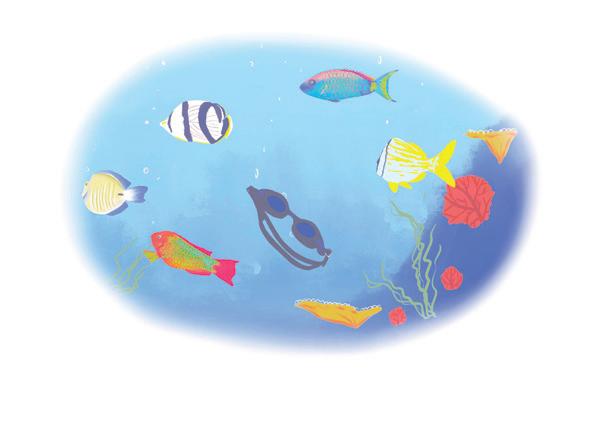
Her mind was fighting her with every breath. But what if . . . But what if . . . Maybe if . . . If I could just . . .
Stepping back from the tangle of terror, she assured herself, The greatest danger is not an actual barracuda. It’s the imaginary barracuda. It’s my own thoughts making me panic.
Present Moment, Only Moment. Over and over again. Breathing. Kicking. Stroking. Breathing. But her fearful thoughts pushed back. Terrible dangers and misfortunes were lurking in the depths. Narissa was exposed and helpless. If a barracuda attacked her . . .
But as each fear rose to the surface of her mind, she gently pushed it away. She focused on the movement of her legs, the slicing of the water by her hands, breathe in, breathe out, pull forward, Present Moment, Only Moment. Gradually, she eased into the familiar routine, the muscles of her mind recognizing the motion and her mantra.
Just five hundred yards from shore, she encountered a boat. She hailed the crew from the water and directed them towards the dinghy. No longer afraid, she completed the swim to the shore, where she rested on the sand, waiting for her sister and cousin. She sat on the beach, feeling incredible. All of those hours in the pool practicing Mindfulness had paid off. Her Mindfulness practice had saved her.
As so often happens in life, the thing she feared most never actually happened. Her greatest threat was her own fear. In the end, she didn’t encounter a barracuda at any point in her swim. Only her fear of the barracuda. ♦
We can spend our lives battling barracudas—always worrying about what comes next. I am lonely right now—will I be lonely forever? I hate my job—will I be stuck in this misery forever? When I get my test results—what if they’re positive? What if I talk—and they don’t like what I have to say?
When we struggle with fear, resentment, or depression, what’s happening right now feels permanent—even if it’s actually temporary.
Let’s take a moment to explore worrying and what we can do about it.
The function of these fears is to motivate action:
• Motivation to seek companionship and community.
• Motivation to look for another job.
• Motivation to get support in case the test results come back positive (when you want them to be negative).
• Motivation to craft your words and think through what you will say.
In Narissa’s case, fear provided the motivation to rescue herself and her friends. Unfortunately, when the fear became dysfunctional, the accompanying worries threatened to drown her.
Putting your attention where you want it takes practice.
In weight training, you build strength by repeatedly lifting weights. Learning an instrument takes thousands of hours of practice. To swim, you get in the pool and kick and stroke and breathe—or you aren’t swimming. You won’t learn Mindfulness or other skills just by reading about them or listening to a podcast about them.

You have to practice.
Practice is essential for every skill in DBT. We have to practice when the stakes are low so using skills becomes reflexive when the stakes are high. Just like athletes condition their muscles, we are conditioning our minds.
Suppose Narissa had not spent months swimming mindfully. In that case, she wouldn’t have been able to pull herself back from a panic attack using Mindfulness. That took practice.
I don’t want to waste this life worrying about things that never happen. None of Narissa’s fears materialized. There are no actual barracudas in this story, just the fear of barracudas.
Maybe this sounds naïve. You may wonder, How am I supposed to focus on the preciousness of the present moment while I’m evading a squadron of imaginary barracudas! But shift perspective. Narissa is a strong swimmer. There are no barracudas in sight. The water is clear and full of benign, colorful fish. Focusing on the present moment, free of barracudas, she found her strength and relaxed her body.
Feeling skeptical? Or maybe defensive? That’s okay. Sometimes bad things really are happening in this moment. Mindfulness can help you get through all of it.
When we practice Mindfulness, we recognize the silliness, the cruelty, and the terrifying impact of our unruly thoughts: falling into the future or worrying over the past. Our minds get stuck in these loops. But we can take a step back and manage them with kindness. Sometimes, I laugh at my own mind: Silly brain, you are hurting me again. Let’s take a break from that.
Sometimes bad things are happening in this moment. Mindfulness can help you get through all of it.
Unit
1: Mindfulness
Has all this buildup motivated you? I hope so. Try out an activity (or two or three) to do mindfully each day this week.
In the Mindfulness Unit introduction, I said meditation was boring. And it often is, but still, you might like it.
Meditation is the brain gym of Mindfulness. Focusing on the breath trains your mind to concentrate on one-thing-in-the-moment. Meditation can be refreshing, even when it’s challenging. Imagine giving your brain ten minutes to be cleansed with stillness—like a bath for your brain.
There is a Dialectic about meditation. It can be relaxing, but also provoke irritability and restlessness. Meditation is often unpleasant. If you struggle with meditation, you’re doing it right.
A formal meditation practice is one of the best ways to develop your Mindfulness muscles. You can start with five minutes a day and build to twenty minutes. Simply sit still while focusing on your breath or a mantra like Present Moment, Only Moment. Gently bring your mind back to the breath whenever it wanders to other things. Over and over again. You can access numerous guided meditations on my website at www.DBTforLife.com.
If you struggle with sitting still, walking meditation may be a helpful alternative to breathing meditation. With walking meditation, you put all of your attention on your feet as you lift and lower them with each step. In traditional walking meditation, you pace back and forth a distance of about ten yards. However, you can also practice walking meditation as you wander through the park or walk to work.

Put aside the internet, the TV, even conversation for five minutes and focus all of your attention on the taste, temperature, and texture of your food. When distractions come, bring your attention back to your eating. Try using beginner’s mind and experience your food as though you had never tried it before.
You can practice Mindfulness right now. If you are reading mindfully with your full attention—that is Mindfulness practice. Give your complete attention to the activity of the moment: dishwashing, housecleaning, exercising, or engaging in conversation (using mindful listening.) Dance mindfully to your favorite music. Or set aside some time just to listen to music with 100 percent attention.
For more information on Mindfulness in DBT, please refer to Marsha Linehan’s DBT Skills Training Handouts and Worksheets, 2nd Edition, p. 45–46, p. 350–352.
Chapter 1: Mindfulness as a Practice
Wise Mind honors your emotions and considers the consequences of your actions. Every skill in DBT points you towards your Wise Mind. The goal is to soothe your Emotion Mind and ease the rigors of Reasonable Mind, so you can hear your deep wisdom. Your Wise Mind is always compassionate, while taking responsibility. In the story “Love Crimes,” Sara’s fear of not being loved has guided her life decisions—until she finally listens to her Wise Mind.
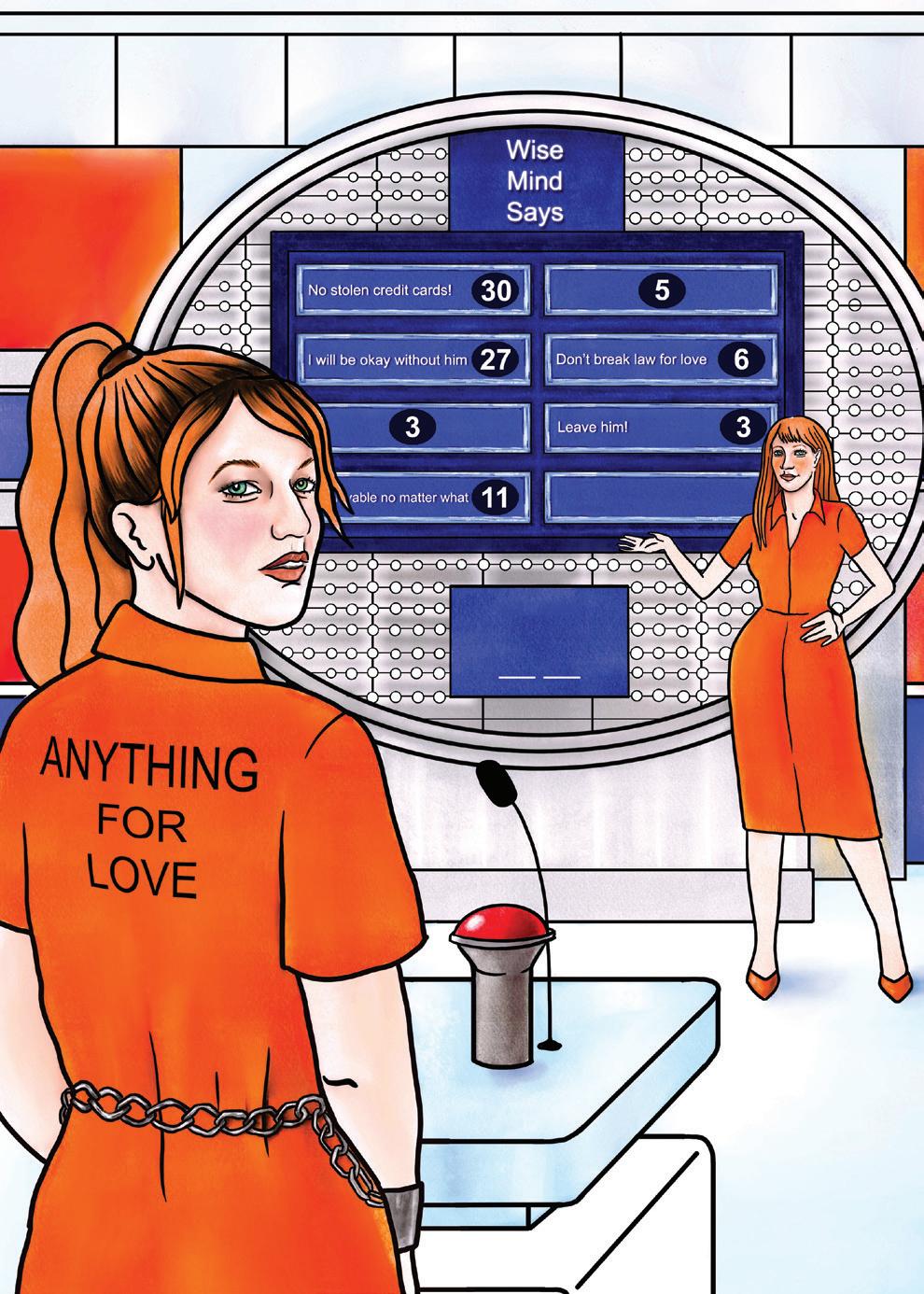
I n h I s rush to get to the commode , Adam left his laptop open. It only took Sara a moment to check his browser history. A few clicks took her to his profile on a website for “Hot Local Hookups.” Young stud looking for sensual woman for play and more.
Sara sat on the bed, her whole body vibrating with anxiety. Oh please, please, God, not again.
The toilet flushed. Adam came out of the bathroom, hitching his belt. He seemed so far away, like a stranger who looked like her boyfriend. Her skin prickled with terror as he looked from her to the open profile. Was spying a worse crime than cheating?
“I’m not dumb, Adam,” she said.
He didn’t acknowledge anything. Instead, he closed the computer and glared at her. “I didn’t say you were dumb, Sara.” Adam picked up the laptop and walked out of the bedroom.
She followed him into the living room. Her legs were wobbly, and her head felt woozy. She wanted to say something mean. But she couldn’t find the right words to hurt him.
Adam sat on the couch, watching her with those melty brown eyes, and said, “I love you, boo. Everything else is just bullshit.”
His voice cast a spell on her. The incantation of “I love you.” She could endure anything but losing the sound of his voice and the hairy, smelly manliness of him.
Trying not to cry, Sara said, “I love you, too.”
Somewhere deep inside, her wisdom pleaded for attention. A small prayer formed there: Please God, release me from this man. But every time she thought of leaving him, it felt like dipping her toe into a sea of lava. To walk away from him would mean crossing a hundred scorching miles of it, only to reach the other side and be alone forever.
As he toyed with the remote, flipping through channels, he patted the seat next to him. “Come here, boo.”
Then he held out his hand, and she couldn’t resist. He hated holding hands. Whenever he of-
fered that kind of affection, she knew he was really sorry. He pulled her to him, kissing her. That tiny voice of wisdom disappeared.
“Careful now,” he said, wincing with pain.
“Does your tooth still hurt?” she asked.
“Nothing I can’t handle,” he replied, staring into her eyes until she looked away. “You take good care of me. I’m a lucky guy.”
“I love you. I couldn’t just let you be in pain.” She smiled, still pushing back tears. Yesterday, he broke a tooth. It literally crumbled in his mouth. Sara insisted on taking him to the dentist, even signing the papers accepting responsibility for the bill.
Last night, he touched her in all the right places, promising, “As soon as Henry has work for me, I’ll pay you back.”
“I know,” Sara had said, looking away. She was used to broken promises.

The tattoo on her forearm read Anything for Love. When Sara was in love, she would do anything to be loved back. She even committed small crimes in the name of love. Just misdemeanors. Sometimes undetected. A few of them were on her permanent record. She had shoplifted construction supplies for Larry. She let John Jay use her bank account to launder the money he made selling weed.
When John Jay got caught, Sara’s bank account was closed, and she was sentenced to community service and mandatory counseling.
That’s how she ended up in DBT group. The DBT lady taught her: Emotion Mind is when your emotions are running the show. In Emotion Mind, everything feels super urgent. You don’t want to act from Emotion Mind.
Sara knew it was Emotion Mind keeping her in constant anxiety about losing Adam. Emotion Mind told her being with Adam was better than being alone. And that fear kept her trapped in this relationship.
For a few weeks after Sara found the profile, Adam was so sweet and affectionate. He played her favorite song and danced with her in the living room, slow and sexy. He was generous in bed. He texted her little love notes when she was at work and even brought her a little bouquet of chrysanthemums. He told her, “I ain’t ever been loved like you love me, Sara. You know I appreciate you, don’t you?”
“Yes, I do.” She blushed with pleasure. “You’re so good at telling me.”
But then he changed, growing distant and easily irritated with her. Nothing she cooked tasted good. He took everything she said and twisted it around to make it seem like she was criticizing him. It felt like he hated her. But why?
Her Wise Mind gently asked for her attention. Sara, you’ll be better off without him. It’ll hurt for a while, and then you’ll be okay. But those words were barely a whisper in the storm of her longing for love.
In anticipation of his birthday, she worked extra shifts at the Donny’s Diner. Then one of her tires blew out, and the mechanic said she’d need to replace the two rear ones. After she paid the rent
and utilities, there was no money left. No money to buy his gift or take him out.
She had an emergency credit card. The only trouble was . . . it wasn’t hers. Sometimes a customer would forget their card. And sometimes she would keep it. Just for a couple of weeks. Just in case of an emergency.
What would happen if she used it to pay for a birthday dinner? She could take him to his favorite restaurant. Adam would want the fried chicken special slathered in gravy with mashed potatoes and waffles, and then a mounding hunk of sweet potato pie for dessert. She would ask the waitress to put a candle in it. Sara and the aging waitress who called everybody “sweetie” and “darlin’” would sing him the Happy Birthday song.
He would be pleased with her. If he was happy on his birthday, it would be worth the risk. She imagined how loving he would be. This eased the damning anxiety that bit at Sara’s neck and calves whenever she sensed he might leave her.
On the other hand, she would be committing credit card fraud. That reality brought on another kind of panic. With her record, even a small fraudulent transaction might ruin the precarious balance of her life.
A clear thought burst through the static of her anxiety. This is Emotion Mind—Emotion Mind wants me to use this card.
What’s the rule? What’s the rule from DBT class? she asked herself. Right, I’m not supposed to act from Emotion Mind.
She laughed with relief. It felt good to recognize Emotion Mind, instead of acting on it. Emotion Mind really wants to use this credit card.
Her Reasonable Mind scolded her: You might be arrested and serve time if you use the card. Remember how your cousin went to jail for check fraud?
I’m not supposed to act from Emotion Mind.
She wasn’t even sure what the legal consequences might be. Reasonable Mind made her feel stupid and ashamed.
But what does Wise Mind say? Wise Mind is much kinder than Reasonable Mind. She could hear the DBT lady saying, “Wise Mind is always compassionate, but it also thinks through the consequences.”
Sara imagined a TV show host standing in front of a large game board. Swinging her pointer finger towards the sign, she hollers: “And Wise Mind says . . .” Then the top of the board rotates, revealing, “Don’t commit crimes to keep this man.”
When Sara got home from work, she greeted Adam, saying, “I’m gonna make you a nice birthday dinner.”
She scraped together a modest supper. Then she lit a candle and planted it in the meatloaf. Pretending to be delighted by the whole thing, Sara hoped her show of joy would rub off on him.
It did not go well.
He picked at his food, looked at her with disgust, and said, “I can’t take this shit anymore. The spying. The whiny tears. It just ain’t fun anymore.”
The chill in his voice was unbearable. “Why? Adam. What’s going on? What did I do?”
“Do I really have to tell you?” he said. “I wasted two years with you when I coulda been doing something better with my life.”
“What things? Did you meet someone on that website? Is that what this is about?” Sara’s voice got loud and high-pitched.
He sneered. “I don’t have to tell you shit about who I did or didn’t meet. This is about getting away from you, Sara. I gotta get away from this awful little apartment and your crap meatloaf.” He picked up his plate and threw it to the floor, smashing it into pieces. “Happy fucking birthday to me!”
He had already packed his stuff.
As he grabbed his things and walked out the door, Sara didn’t protest. He looked at her one last time and said, “I never loved you. I just felt sorry for you.” Then he slammed the door shut behind him.
She sat at the dinner table, stunned, looking at the broken plate on the floor. She thought about his violence and his anger. She thought about how peaceful the apartment would be without his moods. She stood up and fastened the deadbolt.
The spell was broken. She wasn’t sure why, but she felt no pain or longing—just numb.
Then she thought: Thank goodness I didn’t use that credit card. Her whole body relaxed and she signed deeply. Adam was leaving her, and all she felt was a flood of relief that she didn’t break the law.
She softened into the moment. For the first time in a very long time, she had taken care of herself. She put her own safety and well-being first, listening to her Wise Mind. It felt good.
Sara knew this feeling probably wouldn’t last. She would need support. She wanted her mom. There was a lot to figure out. At least she knew a sense of peace was possible. She could cross that sea of lava and be okay. ♦

Poor Sara. Love can be so painful. The need to belong and have a person who is your person can be overpowering, locking us into bad situations where fear makes all our decisions. Fortunately, Sara recognized her Emotion Mind and listened to her Wise Mind. She gained the clarity to act on her wisdom and didn’t commit another crime for love.
Let’s take a deeper dive into each of the three mind states: Emotion Mind, Reasonable Mind, and Wise Mind.
In Emotion Mind, our feelings dominate our thinking and decision-making. Emotions aren’t bad. We need emotions to motivate and inform us. However, when Emotion Mind is in charge, it can make us impulsive.
Can you think of a recent time when your emotions were in charge? Did you lose sight of consequences? Did everything take on an overwhelming sense of urgency? If your answer is yes, you were probably in Emotion Mind.
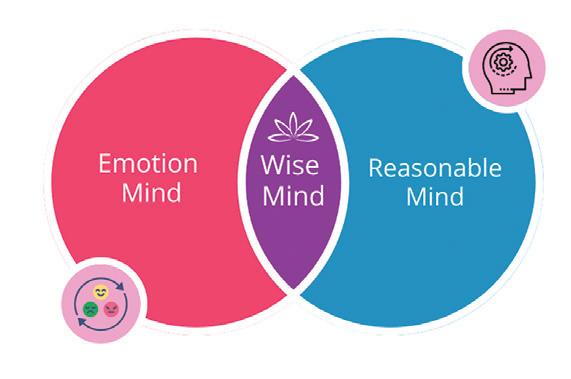
• Negative emotions can feel like an emergency: “Why hasn’t he texted me? I’m gonna keep texting until that jerk responds!”
• Positive emotions can have the same intense push for impulsivity: “This is so much fun! More will be even better! I need more now!”
On the opposite end of the spectrum is Reasonable Mind. Reasonable Mind is about logic without regard for emotions.
Reasonable Mind imposes a lot of shoulds: You should do this. You should be like this. At its best, Reasonable Mind is good at thinking through consequences. At its worst, Reasonable Mind can lack compassion and be very inflexible. Acting from Reasonable Mind can cause us to overlook other people’s feelings—and our own emotions.
Wise Mind is your deep abiding wisdom. It’s a combination of Emotion Mind, Reasonable Mind, and your intuition about what’s right for you.
In your Wise Mind, you can recognize your emotions and nurture yourself. Wise Mind takes those emotions into account as you make decisions. Wise Mind also uses Reasonable Mind to think through consequences and will hold you accountable with compassion. Thus, Wise Mind is the intersection of reason and emotion, seasoned with a bit of intuition.
When Emotion Mind is fired up and loud, it’s hard to hear our Wise Mind. Reasonable Mind can come at us with hard lessons about what we should and shouldn’t be doing or feeling. With all that racket going on in our heads, listening for our deep wisdom can be challenging.
When Sara is finally in her Wise Mind, she has compassion for herself and the challenges of losing Adam. She can also recognize the consequences of acting impulsively. When Sara listens to her Wise Mind, fear is no longer driving her decisions. She can also treat herself with kindness as she faces those fears.
The good news: All DBT skills amplify your Wise Mind.
We use Mindfulness to recognize which mind state is prevailing in any given moment. Mindfulness allows us to identify Emotion Mind and think, Oops. Try not to act right now. It also helps us recognize when Reasonable Mind is too focused on logic and invalidating our emotions.
Being able to hear your Wise Mind is the most exquisite part of Mindfulness. You can practice this by asking yourself: Is this a Wise Mind choice? Practicing prepares you for those moments when Wise Mind can alter the course of your life . . . like not using a stolen credit card.
Practice asking yourself “Am I in Wise Mind?” or “Is this a Wise Mind choice?” For example, as you go through your day making decisions, come back to these questions again and again regarding how you are spending your time, and how you are taking care of your body, your work, your relationships, and your goals.
As you have reactions and thoughts throughout the day, ask yourself: “Is this Emotion Mind?” You will recognize Emotion Mind by the sense of urgency and intensity you feel. And if it is Emotion Mind talking at you, slow down and weigh the pros and cons of the action you are considering.
When you feel overwhelmed, are struggling to make a decision, or are feeling impulsive, try placing your hand on your solar plexus and breathing into the center of your body while asking yourself, “What does Wise Mind say?” Then listen for the answer from deep inside yourself. Don’t tell yourself the answer. Just listen.
Set a couple of reminders on your phone to take a temperature check of your emotions and rate them on a scale of zero to ten (ten being the most intense). And ask yourself: “Am I in Emotion Mind or Wise Mind? Is this a good time to act?”
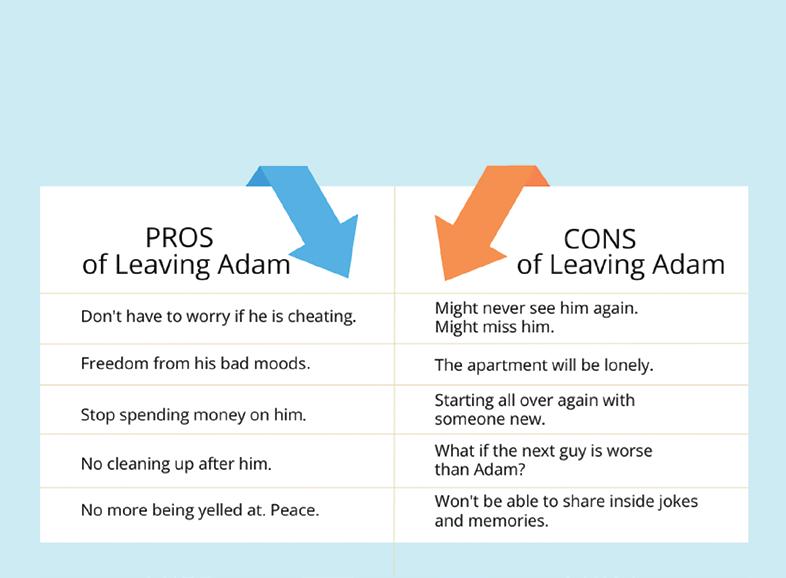
The DBT Pros and Cons list is a comprehensive approach to weighing all the variables when you are making a decision. The example below illustrates what Sara’s pros and cons would look like regarding whether to stay with Adam or leave him.
According to Sara’s Wise Mind ...



Once Sara created a comprehensive list of the pros and cons, she worked to problem-solve the Cons of leaving him and Cons of staying with him.
During the course of the relationship, Sara has tried to solve the Cons of Staying with Adam. She hasn’t had any lasting success with fixing the problems. The Cons of Leaving him seem to have more potential solutions.
Sara will miss him. As time passes, it will hurt less and less.
She wants a romantic partner. When she is ready to date again, she will use a “Wise Mind Dating Plan” to avoid the mistakes of the past.
To deal with the loneliness of an empty apartment, she can consider finding a roommate to share rent.
She can reconnect with old friends and work on building jokes and memories with new friends.

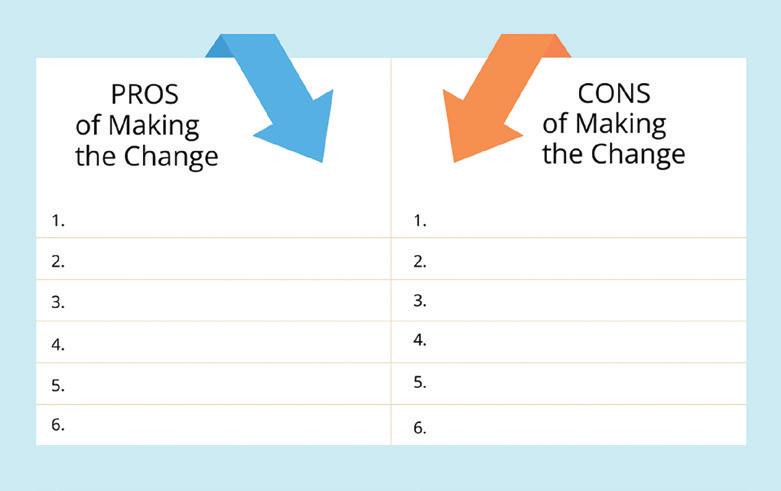
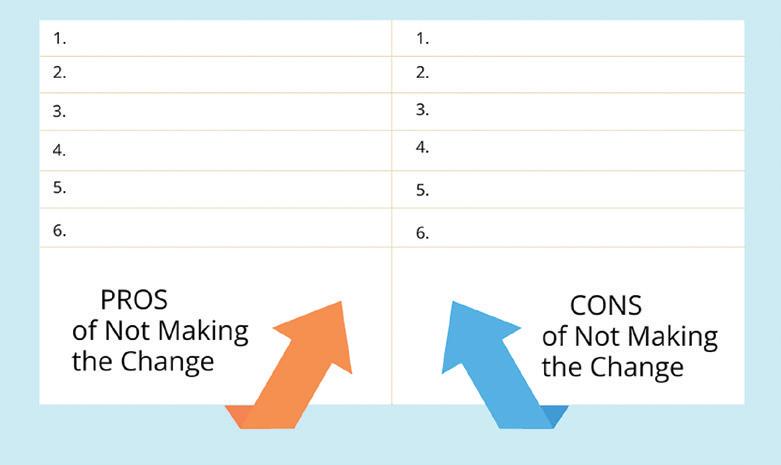

The DBT approach to weighing pros and cons covers all the likely outcomes to help you make decisions. Use all four quadrants of the graphic.
Start by listing all the PROS of taking a specific course of action.
List all the PROS of NOT taking action.
List all the CONS of taking the course of action.
List all the CONS of NOT taking action.
Problem solve the CONS of taking action and not taking action.
Review everything you have written with your Wise Mind, and you will probably find the best course of action.
Sometimes it helps to give your Wise Mind a specific voice. Dolly Parton’s voice is a favorite with my Tennessee clients. Whomever your Wise Mind sounds like, listen for that voice.
Ask yourself ...
What would Dolly say?
What would Maya Angelou say?
What would Jesus say?
What would Grandma say?
What would Marsha Linehan say?
What would Wise Mind say?